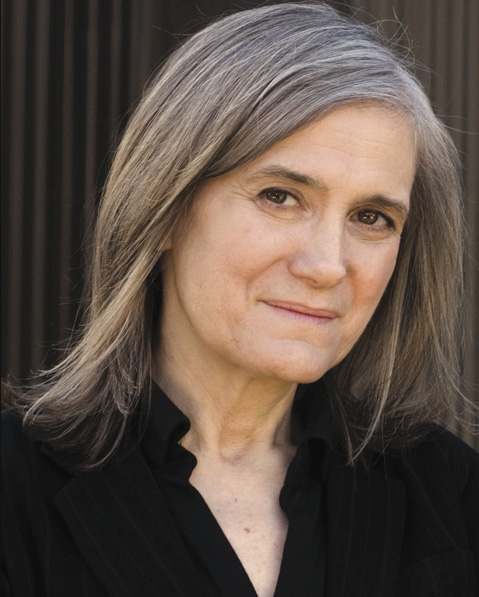Amy Goodman Talks 20 Years of Independent Journalism
'Democracy Now' Host Speaking at UCSB April 10
Amy Goodman, host and executive producer of Democracy Now, the only public media program that airs simultaneously on radio, cable, satellite television, and the Internet, will be speaking at UCSB on April 10 at 7:30 p.m. Goodman, along with longtime writing partners Denis Moynihan and David Goodman, are on a 100-city book tour to promote their latest book, Democracy Now!: Twenty Years Covering the Movements Changing America.

Amy Goodman’s list of journalism awards and accolades is too lengthy to mention. Suffice it to say that Goodman has walked the walk in war zones and areas wrecked by natural disasters, and has been on the ground to cover major stories such as the recent Paris climate negotiations and the Black Lives Matter movement.
Brian Tanguay caught up with Amy Goodman on the eve of her book tour.
When you started the broadcast back in 1996, did you have any idea it would become what it is today? We thought it would be a nine-month project, ending with the election, however that turned out. We were the only daily election coverage in public broadcasting. But there was more demand the day after the election than before. More and more stations wanted to pick us up. First it was community radio stations, then NPR, and public access television stations. Then PBS stations asked to air us. It just grew and grew. We’re translated into Spanish and Democracy Now is now carried on 1,400 public stations. Our growth is an indication of the hunger for independent voices.
Democracy Now started at a time when media consolidation in the United States was gathering momentum. Did the prospect of trying to establish an authentic voice in a corporate-dominated environment give you pause? Sadly, they have left such a huge niche — in fact, the corporate broadcasters are now niche broadcasters. These corporate networks feature such a small circle of pundits who know so little about so much. Our work at Democracy Now is giving voice to the vast majority of people whose voices are not represented. That’s what gives us our authenticity.
You and your team at Democracy Now have profiled, featured, and interviewed people that the corporate media ignore. I’m thinking of Noam Chomsky, Julian Assange, Edward Snowden, Jeremy Scahill, Angela Davis, Arundhati Roy — a long list of important voices that the average American knows little if anything about. Was providing a platform for voices like these part of your original vision or did that evolve? These are voices that need to be heard. I won’t say these voices have been blacked-out — maybe whited-out is more accurate — but we’re talking about thinkers and grassroots leaders, and people closest to the issues that impact their lives and communities and nations.
Of all the interviews you’ve done and events covered, is there one that stands out more than the rest? No, it’s more the inspiration of so many different voices. Our team at Democracy Now uses all its skill and diligence to give voice to people closest to the issues. This is critical in a democracy.
Can you recall the number of times you’ve been arrested in the course of reporting? (Laughs.) I don’t have the exact number, but I will say that it’s unacceptable that police arrest reporters. Our job is to be in the streets covering events and talking to people who are excluded from the conversation.
Which corporate media broadcasts do you watch? As many as I can. It’s important to understand how events are framed, and what questions aren’t being asked.
What unsettles you when you look at the contemporary political landscape, particularly the election coverage? The lack of diversity.
What gives you hope? The movement. There’s no question about it. This book, written with my colleagues Denis Moynihan and my brother David Goodman, is about people all over the world who are challenging discrimination against immigrants or fighting for gay and lesbian rights or economic and environmental justice. The persistence and dedication and ingenuity of these people is inspiring.
I have to ask you this question, Amy, because it’s one of the most important questions of our time. Have you seen Hamilton? I can’t believe you’re asking me this question! It’s as if you have a little lens into my life. I have been wanting to see Hamilton, but of course there’s no way because the show is sold out for months. But then a week ago a friend of mine came into town for my birthday bearing tickets for the show! It’s an unbelievable work that is changing the face of Broadway. Who would have thought American history could be told through hip-hop and rap?
4•1•1
Amy Goodman’s talk in UCSB’s Corwin Pavilion is free for students, and $10 for non-students. Tickets are available online here or at the Associated Students Ticket Office. For more information, visit kcsb.org or call (805) 893-3921.



